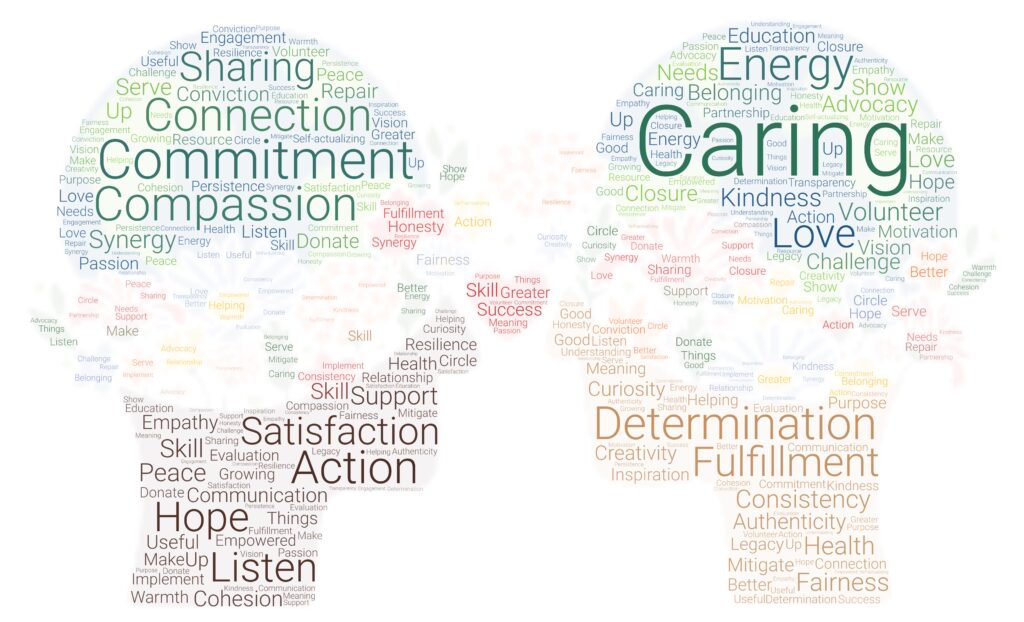by Leslie McGeorge for Earth & Climate Ministry
On Saturday, March 22, forty-two congregants, including new members, participated in a workshop on climate justice at UUCWC. We considered how to work collaboratively on transformative actions to address our larger community’s climate and related social justice needs. We identified our at-risk communities, such as Trenton and Morrisville, as well as priority issues such as flooding and disaster recovery, urban excessive heat, lack of trees and nature access, food insecurity and minimal fresh food resources, segregation, old housing stock, and lack of green energy and energy efficiency. To address community needs, ideas were generated regarding potential intersectional justice actions, both churchwide with partners and individually.
Climate Dialogues’ outcomes will be documented and synthesized to provide input for strategic planning. One potential outcome could be developing a climate disaster response plan to assist local partner organizations. Another outcome will be applying the Dialogues’ information for the church’s application for UU Green Sanctuary 2030 recognition. If you would like the Dialogues materials or to assist in synthesizing the outcomes of these discussions, please get in touch with Earth & Climate Ministry at earthministry@UUCWC.org.
The UU-designed Climate Dialogues program is part of the Climate Revivals celebrated in over 400 churches nationwide. At UUCWC, the Dialogues program was spearheaded by the Earth and Climate Ministry, sponsored by the Council for Faith in Action (CFA), and other justice ministries participated. Our workshop was tailored to our church and its larger community needs through the provision of key background information, including a Green Sanctuary 2030 Congregational Profile with key aspects of our church, its history of justice work, its justice ministries, local community climate disruption impacts, and information on our local areas of oppression. Also provided were takeaways from our church’s common book read, “Climate Change is Racist,” regarding the deep connections between climate change and racism.
We conducted a series of workshop activities, including:
- Collective Imagining of Our Communities Thriving
- Making Connections with the Challenging Community Realities
- Building Capacity for Community Care and Ideas for Action
We also developed individual sacred circles, which we might consider taking to address a community need that brings us joy and what we have to offer. We ended our workshop with three words of commitment to climate justice, which were made into the church-specific Climate Justice Dialogues word cloud image above.
It is with deep appreciation that we thank all of those involved in making the Climate Dialogues happen, particularly Earth & Climate Ministry members and the other Council for Faith in Action justice team representatives on the Planning Committee – Sandee Steinberg, Barbara Drew, Geri Koblis, Janet Hubbard, Wendy Stasolla, Chris Piatek, Holly Bussey, and facilitators Marianne Alt and Regina Zelinski, as well as MJ Hansen, Simone Niemczura, John Harvi, Rev. Kim, and all of the church staff.

